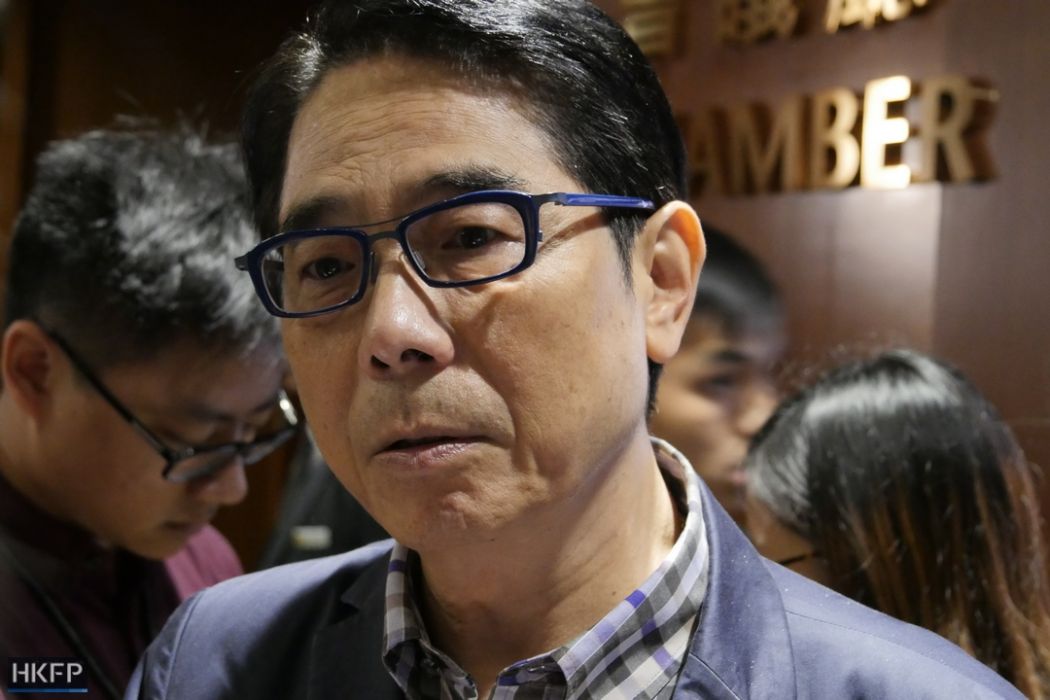Hong Kong’s current leader Carrie Lam again found herself at odds with colonial-era governor Chris Patten on Wednesday over the controversial extradition law.
Patten said the law would be the “worst thing” to happen in Hong Kong since the 1997 handover, adding that it would remove the firewall between the city and mainland China.

The Chinese system had “no real distinction between the courts, the security services and what the party wants to happen,” Patten told Bloomberg in London.
However, Chief Executive Carrie Lam continued her defence of the proposal, which would allow Hong Kong to transfer fugitives to jurisdictions where the city has no existing deal.
“Recently, some of the lawmakers have applied a double standard,” she said during a legislative Q&A on Wednesday. “If it is the central government weighing in, they would say it is interference and disrupting One Country, Two Systems… but they think it’s reasonable that they go to distant countries to invite them to intervene.”
Her comments came days after democrats visited Europe and the US, urging foreign countries to put pressure on Hong Kong.
Lam added that the pro-democracy camp was to blame for “losing six weeks” of legislative time, which could otherwise have been used to vet the proposal. Democrats have sought to stall the bill, whilst lawyers, journalists, foreign politicians and businesses have raised concerns over the risk of residents being extradited to the mainland.
‘Not an ideal method’
On Monday, security chief John Lee announced that the bill will circumvent committee-level scrutiny at the legislature and move directly to the full council.

Lam told lawmakers that the situation would not become a new norm: “This was not an ideal method. Some people are worried that this precedent would mean that every bill will go to the full council directly – this would be impossible.”
Lawmaker Wong Kwok-kin from the pro-Beijing Federation of Trade Unions suggested that any extradition request from China could be approved by the country’s top courts, as an additional safeguard. Lam replied that she would discuss the option with Beijing.

She added that the law would not give “carte blanche” for Hong Kong’s chief executive to do what she wants.
“In the whole process, the chief executive’s role is to start the extradition process… and to refer it to the courts to deal with openly,” Lam said. “Hong Kong also has the media as the fourth estate, which can monitor the government. If the courts say there is insufficient evidence for transfer, the chief executive cannot order it.”
Democrats held a brief protest before the start of the Q&A session, which ended with pro-democracy lawmakers Kwok Ka-ki and Roy Kwong ejected from the chamber.

On Wednesday, Reporters Without Borders (RSF) urged lawmakers to vote against the bill in a statement.
“The Chinese regime has shown on multiple occasions that it needs no solid grounds to punish critical voices,” said Cedric Alviani, the head of RSF’s East Asia bureau.
“If such a regulation was adopted, Beijing would no longer have to resort to abduction, and would simply be able to seize whoever they wish to silence under a false accusation.”
The Hong Kong Free Press #PressForFreedom 2019 Funding Drive seeks to raise HK$1.2m to support our non-profit newsroom and dedicated team of multi-media, multi-lingual reporters. HKFP is backed by readers, run by journalists and is immune to political and commercial pressure. This year’s critical fundraiser will provide us with the essential funds to continue our work into next year.

